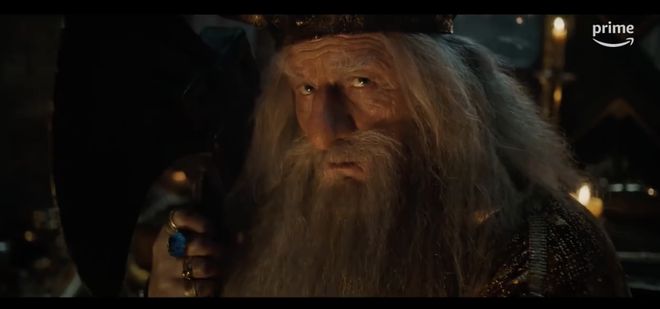On August 29th, the second season of "The Lord of the Rings: The Rings of Power" will debut with three episodes out of a total of eight. Many familiar faces from the first season return, and new characters are set to join the fray.

The trailer released in late July hints at an even more intricate web of storylines and character arcs. This season, Sauron, who remained largely in the shadows during the first season, steps into the light, intensifying the narrative conflicts. The epic battle scenes showcased in the trailer underscore this shift.
In contrast to the first season of "House of the Dragon," which benefited from the foundation of George R.R. Martin's source material and his involvement as a screenwriter, "The Rings of Power" ventured into uncharted territory, expanding upon J.R.R. Tolkien's Middle-earth without the direct support of his original texts for this particular period.
"The Rings of Power" delves into the events preceding the familiar tale of "The Fellowship of the Ring." Lacking the depth of Tolkien's original narratives, the series faced skepticism regarding its content quality. Coupled with the extraordinary legacy of "The Lord of the Rings" and "The Hobbit" film franchises, the pressure on the show was immense.

It is true that "The Rings of Power" cannot match the cinematic achievements of its predecessors. These films masterfully captured the essence of Tolkien's world, imbuing it with a sense of grandeur, beauty, and realism while also revealing its darker and more complex facets. However, the absence of Tolkien's direct guidance in the series allowed for creative freedom and introduced elements of suspense that might not have been possible otherwise.
Despite the challenges, there were many highlights in the first season. The narrative unfolded swiftly and the pacing was well-balanced, creating a seamless transition between story arcs and timelines. The characters, though not immediately captivating, had strength and depth, allowing viewers to connect with them and perceive a continuity with the personalities found in the books and films.
The casting choices, despite some criticism for their inclusivity, generally aligned with the plot's requirements. Both lead and supporting actors, while not always commanding attention, possessed distinct traits and motivations that contributed to the overall narrative. In Tolkien's works, the characters themselves are not the sole focus; rather, fate often plays a pivotal role in shaping their destinies.

When judged independently of Tolkien's unparalleled literary achievements, "The Rings of Power" emerges as a commendable fantasy series. It successfully captures the essence of Middle-earth while forging its own path. With these considerations in mind, the anticipation for the second season is palpable, promising a continuation of the saga with renewed vigor and intrigue.
 七弟电影
七弟电影
![韩国丧尸片《#活着/ALIVE》百度云网盘资源[HD-MP41.7GB][完整版][高清韩语中字]-七弟电影](https://gaga.pochou.com/wp-content/uploads/2020/06/活着-电影剧照-5-300x300.jpg)

